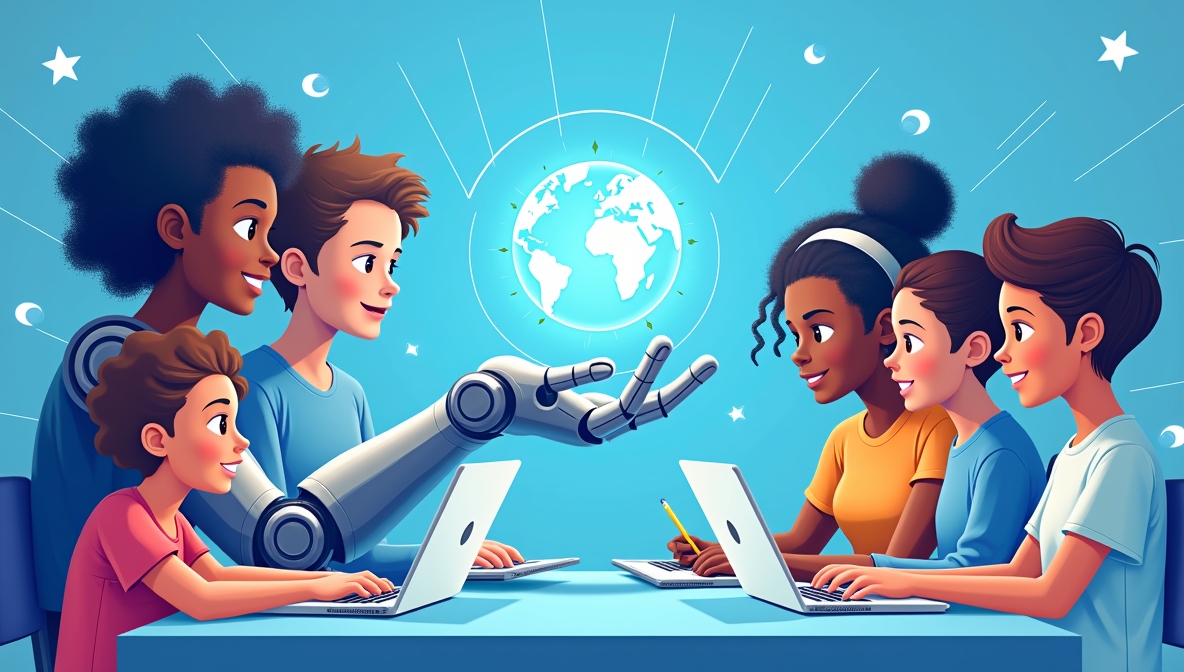Artificial Intelligence (AI) is transforming industries across the globe, and education is no exception. From personalized learning to automated grading, AI is reshaping the way students learn and teachers teach. This technological revolution is not just a trend—it’s becoming a fundamental part of how educational systems function. In this post, we will explore how AI is making education smarter, more efficient, and more accessible than ever before.
AI in education refers to the use of machine learning algorithms, data analytics, and intelligent automation to improve educational outcomes. One of the most impactful uses of AI is in personalized learning. Traditional classrooms often struggle to cater to the diverse needs of students. AI addresses this by analyzing a student’s learning patterns, strengths, and weaknesses to provide customized learning experiences. Adaptive learning platforms can adjust lesson difficulty, recommend resources, and even predict future performance, ensuring that each student receives support tailored to their unique needs.
Another area where AI is proving invaluable is in automating administrative tasks. Teachers spend a significant amount of time grading assignments, tracking student progress, and managing paperwork. AI tools can automate these processes, freeing up valuable time that educators can use to focus on teaching and student engagement. For example, AI-powered systems can grade multiple-choice questions, evaluate essays using natural language processing, and provide instant feedback to students. This not only reduces the workload for teachers but also ensures faster feedback for students, which is critical for their learning progress.
AI is also enhancing the way educational content is created and delivered. Intelligent content creation tools can generate quizzes, study guides, and even entire lesson plans based on curriculum requirements. Moreover, AI-driven platforms can offer content in multiple formats such as text, video, and interactive simulations, catering to different learning styles. This flexibility ensures that learning is not only more engaging but also more effective.
One of the most exciting developments in AI education is the use of virtual tutors and chatbots. These tools are available 24/7 and can assist students with homework, explain difficult concepts, and answer questions in real time. For students who might be shy about speaking up in class or who need extra help outside school hours, these AI companions provide a safe and reliable source of support.
AI is also playing a crucial role in making education more inclusive. Students with disabilities often face significant barriers to learning, but AI can help level the playing field. For instance, speech-to-text and text-to-speech tools aid students with visual or auditory impairments. Real-time translation tools help bridge language gaps, making content accessible to non-native speakers. These technologies ensure that all students have an equal opportunity to succeed, regardless of their individual challenges.
Despite its many advantages, the integration of AI into education also raises important ethical and practical concerns. Data privacy is one of the biggest issues. Schools and tech companies must ensure that student data is securely stored and not misused. Additionally, there is a risk of over-reliance on technology, which could lead to reduced human interaction and less development of critical soft skills. Educators and policymakers need to strike a balance between leveraging technology and preserving the human aspects of learning.
Another concern is the digital divide. Not all students have access to the technology required to benefit from AI-powered education. Ensuring equitable access to devices, internet connectivity, and digital literacy training is essential if AI is to truly benefit all learners. Without addressing these disparities, the technology could unintentionally widen the educational gap.
In conclusion, artificial intelligence is revolutionizing education by making it more personalized, efficient, and inclusive. From smart tutoring systems to intelligent content delivery and automation, AI holds the potential to enhance learning experiences for both students and educators. However, to fully realize these benefits, we must address the ethical, practical, and accessibility challenges that come with it. As we move forward, a thoughtful and balanced approach to integrating AI into education will be key to shaping a smarter and more equitable future for all learners.

